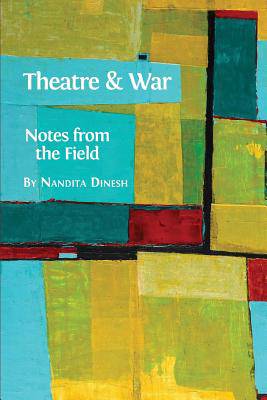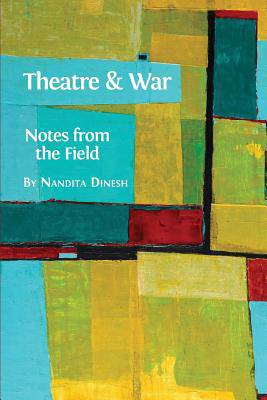
- Retrait gratuit dans votre magasin Club
- 7.000.000 titres dans notre catalogue
- Payer en toute sécurité
- Toujours un magasin près de chez vous
- Retrait gratuit dans votre magasin Club
- 7.000.0000 titres dans notre catalogue
- Payer en toute sécurité
- Toujours un magasin près de chez vous
41,95 €
+ 83 points
Format
Description
Nandita Dinesh places Kipling's "six honest serving-men" (who, what, when, where, why, how) in productive conversation with her own experiences in conflict zones across the world to offer a theoretical and practical reflection on making theatre in times of war. This timely and important book weaves together Dinesh's personal narrative with the public story of modern conflict, illustrating as it does, the importance of theatre as a force for ethical deliberation and social justice. In it Dinesh asks how theatre might intervene in times and places of conflict and how we might reflect on such interventions. In pursuit of answers, Theatre and War adopts the methods of auto-ethnography, positioning the theatrical practitioner at the heart of conflict zones in northern Uganda, Guatemala, Northern Ireland, Mexico, Rwanda, Kenya, Nagaland, and Kashmir. No longer a detached observer, the researcher and practitioner has to be able to meld theory with practice; to speak to 'doing', without undervaluing the importance of 'thinking about doing'. Each chapter approaches the need for a synthesis of theory and practice by way of a term of inquiry―Why, Where, Who, What, When―and each is equipped with a set of unflinchingly honest field notes that are designed to reveal some of the 'hows' from the author's own repertoire: questions and issues that were encountered during her own theatrical undertakings, along with first hand reflection on the complexities, potential, and challenges that attended her global work in community theatre. Within these notes are strategies that give the reader a practical insight into how the discussion might find its footing on the ground of war. The range and scope of this book make it required reading for those interested in theatre―practitioners, researchers, and students alike-as well as those seeking to understand the applications of the arts for ethics, politics, and education.
Spécifications
Parties prenantes
- Auteur(s) :
- Editeur:
Contenu
- Nombre de pages :
- 212
- Langue:
- Anglais
Caractéristiques
- EAN:
- 9781783742585
- Date de parution :
- 27-07-16
- Format:
- Livre broché
- Format numérique:
- Trade paperback (VS)
- Dimensions :
- 156 mm x 234 mm
- Poids :
- 303 g

Les avis
Nous publions uniquement les avis qui respectent les conditions requises. Consultez nos conditions pour les avis.






